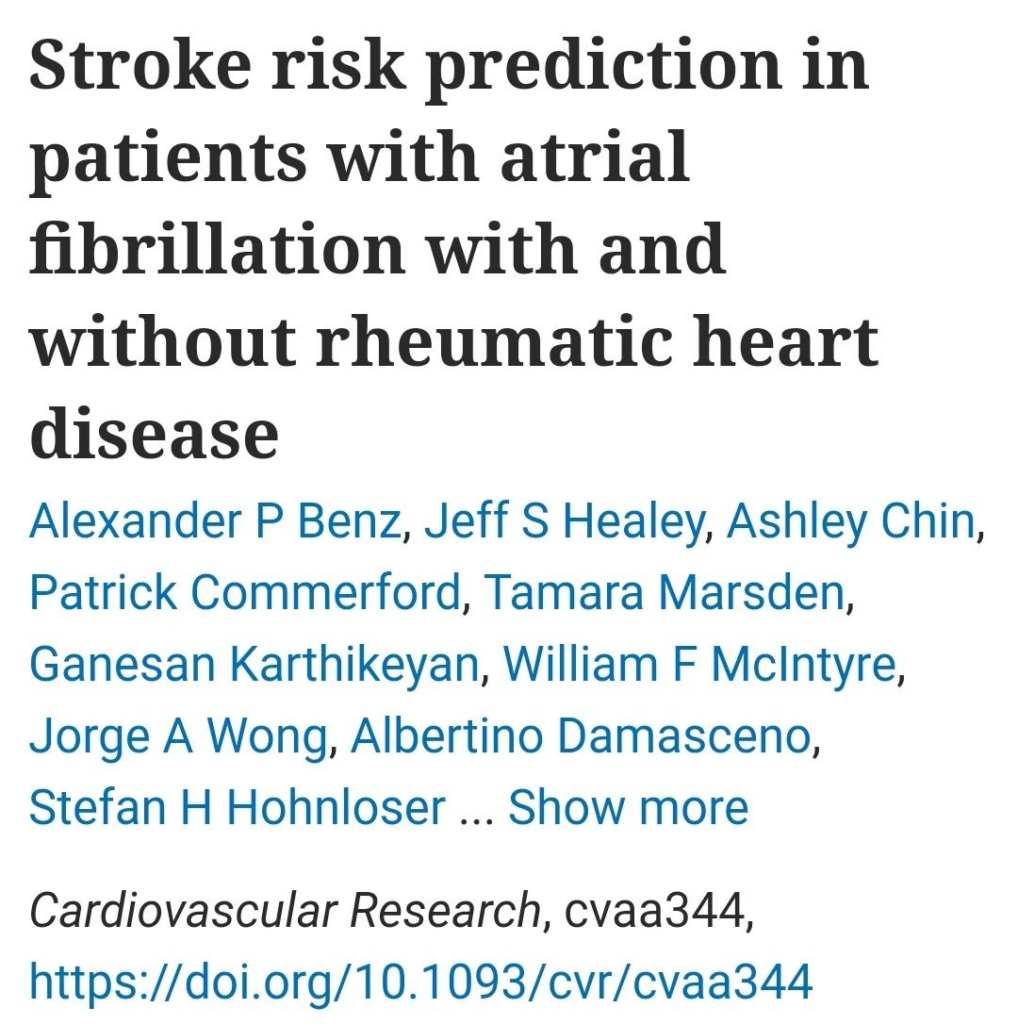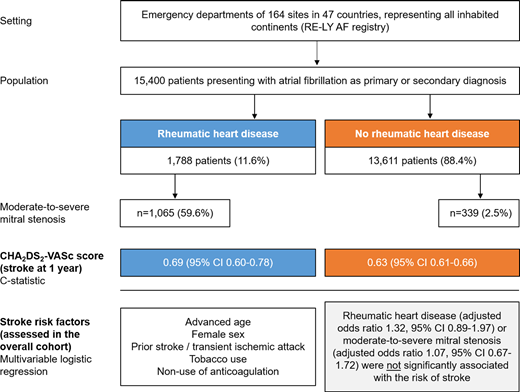Does mitral stenosis increase the incidence of stroke?
- EPA Announces First-Ever Regulation for “Forever Chemicals” in Drinking Water
- Kochi University pioneers outpatient bladder cancer treatment using semiconductor lasers
- ASPEN 2024: Nutritional Therapy Strategies for Cancer and Critically Ill Patients
- Which lung cancer patients can benefit from neoadjuvant immunotherapy?
- Heme Iron Absorption: Why Meat Matters for Women’s Iron Needs
- “Miracle Weight-loss Drug” Semaglutide Is Not Always Effective
Does mitral stenosis increase the incidence of stroke?
Does mitral stenosis increase the incidence of stroke? Moderate-severe mitral stenosis is not an independent risk factor for stroke.
Patients with atrial fibrillation (AF) and rheumatic heart disease (RHD), especially mitral stenosis, are considered to be at high risk of stroke, regardless of other risk factors. The purpose of the study was to reassess the risk factors for stroke in a contemporary cohort of patients with atrial fibrillation.


Research overview
The study analyzed the data of 15,400 patients with atrial fibrillation in the emergency department and included the global RE-LY AF registry, representing residents of 47 countries. The patients were followed up for 1 year after enrollment. Among them, 1788 (11.6%) patients had RHD. These patients were younger (51.4±15.7 years vs 67.8±13.6 years), more women (66.2% vs 44.7%), CHA2DS2-VASc score Lower (2.1±1.7 vs 3.7±2.2, P<0.001).
Mitral valve stenosis (mean mitral valve transvalvular pressure difference of 11.5±6.5mmHg) is the main valve disease in RHD patients (59.6%). The baseline anticoagulant treatment rate was higher in RHD patients (60.4% vs 45.2%, P<0.001).
The results of the study showed that after 1 year of follow-up, the incidence of unadjusted stroke with and without RHD was 2.8% and 4.1%, respectively. The CHA2DS2-VASc2 scores of the two groups were not high (1 stroke, c-statistics were 0.69 and 0.69, respectively). 0.63). In the entire cohort, advanced age, female, previous stroke, smoking, and non-use of anticoagulation were predictors of stroke (P<0.05). There was no correlation between mitral stenosis and stroke risk (adjusted odds ratio 1.07, P=0.764).

Conclusion
The CHA2DS2-VASc score in this cohort still closely matched the actual stroke incidence. The score of patients with atrial fibrillation without RHD was 3.7±2.2, and stroke occurred 4.1% in one year. The score of patients with atrial fibrillation with RHD was 2.1±1.7, and the incidence of stroke was 2.8%. The result of such a match seems to be that RHD patients are just bystanders?
Therefore, it is concluded that moderate-severe mitral stenosis is not an independent risk factor for stroke. Is this related to the short follow-up time? For valvular diseases such as mitral valve stenosis, the progress of left atrial remodeling in 1 year may not be too great, and no greater risk of stroke in the future can be seen.
(source:internet, reference only)
Disclaimer of medicaltrend.org



